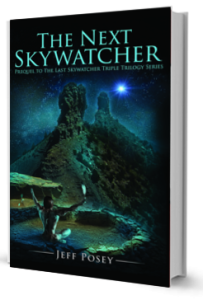Anasazi Gods and Belief Systems
We do not really know what the Anasazi believed. But the world is full of those who think they know. (Including me when I write my historical fictional Anasazi worlds.)
This site, a bit on the amateur side, expresses the conventional wisdom of what the Anasazi believed: Anasazi Belief Systems on “YOUR GUIDE TO THE ANASAZI INDIANS!” Highlights:
The Anasazi were worshipers of many gods, in other words, polytheistic. This meant that the Anasazi had spiritual figures for everything, like rain, crops, animals, etc. An example would be their Creator, also known as ” The Grandmother.”
By tracking the passage of the stars and planets, the Anasazi predicted the coming and going of the seasons. With this knowledge, they prepared ceremonial and rituals to be in harmony with nature. They believed that if these rituals and ceremonies were done properly, they would receive sufficient rain, rich harvests, successful hunts, and good health. Along with these beliefs came the basis for their origins. This is such as their origins in long hunting and gathering, can be inferred from their horned masks, rock art deer, and big-horn sheep images.
The Anasazi had a matriarchal society, which is society dominated by women. Even though women ran society, their spiritual society seemed to be dominated by men, with men figures being portrayed as men and women. From this, the rise of Kachinas [JP: Kachina religion arrived in Anasaziland around 1325], or spirit beings that were their ancestors who in which brought rain, came about.
In Anasazi society, different segments of society were given different spiritual roles to play out. These roles were important to the well-being of the community, so these roles were held in high regard. Some examples of roles they could have had were ” Summer people and Winter people”. However, due to the fact that archaeology doesn’t reveal much information about these roles, we can not be certain what roles the Anasazi had.
Shamans are thought to be a part of the Anasazi spiritual society. Shamans, by definition, are those who are thought to have had a spiritual connection to good and evil spirits. They were, in society, marked as people with physical deformities, epileptic seizures, and/or hallucinations. Shamans are known to look for visions, usually that pertain to healing, warfare, hunting, fortune-telling, and more. However, the process to see these visions included using intoxicants, hypnotic chanting, dancing, or pain to reach the spirit world.
We Will Never Truly Know
The only evidence we have for what the Anasazi believed is from the work of archaeologists and ethnologists who study oral history. While some of what this article reports may be true, it’s more speculation than fact.
This is background research for
 The Next Skywatcher: Prequel to The Last Skywatcher Triple Trilogy Series, coming soon!
The Next Skywatcher: Prequel to The Last Skywatcher Triple Trilogy Series, coming soon!
Warning! This story contains graphic violence including cannibalism.
“I really enjoyed it. It was well-written.” —Thomas Windes, thirty-seven-year veteran Anasazi archaeologist with the National Park Service.
Raised by his beloved Sky Chief grandfather and a mysterious albino woman, Tuwa expects to become the next skywatcher.
When a strange star appears in the sky, so bright it shines during the day, the High Priest, backed by ultraviolent warriors from the South, demands blood sacrifice.
Tuwa’s grandfather, a vocal opponent of the foreigners, is murdered in a public ceremony, cooked, and served to the stunned crowd. Next in line are Tuwa’s adopted mother and the girl he loves, Chumana.
Unable to watch, Tuwa flees in a blind panic into dark wilderness where he’s rescued by a long-distance trader who collects orphans to protect him and carry his goods.
Three years later, Tuwa returns with his hardened band of orphans intent upon revenge—only to discover that the stakes are much higher than he had imagined.
Mere revenge may not be enough.
Jeff Posey writes novels inspired by the Anasazi culture of the American Southwest a thousand years ago.
“Cultures that have dramatically collapsed,” he says, “should at least compel us to dream up stories about how such things can happen.”
He does not, under any circumstances, advocate cannibalism.
Jeff’s Books on Hot Water Press
The post Anasazi Gods and Belief Systems appeared first on Author Jeff Posey.



